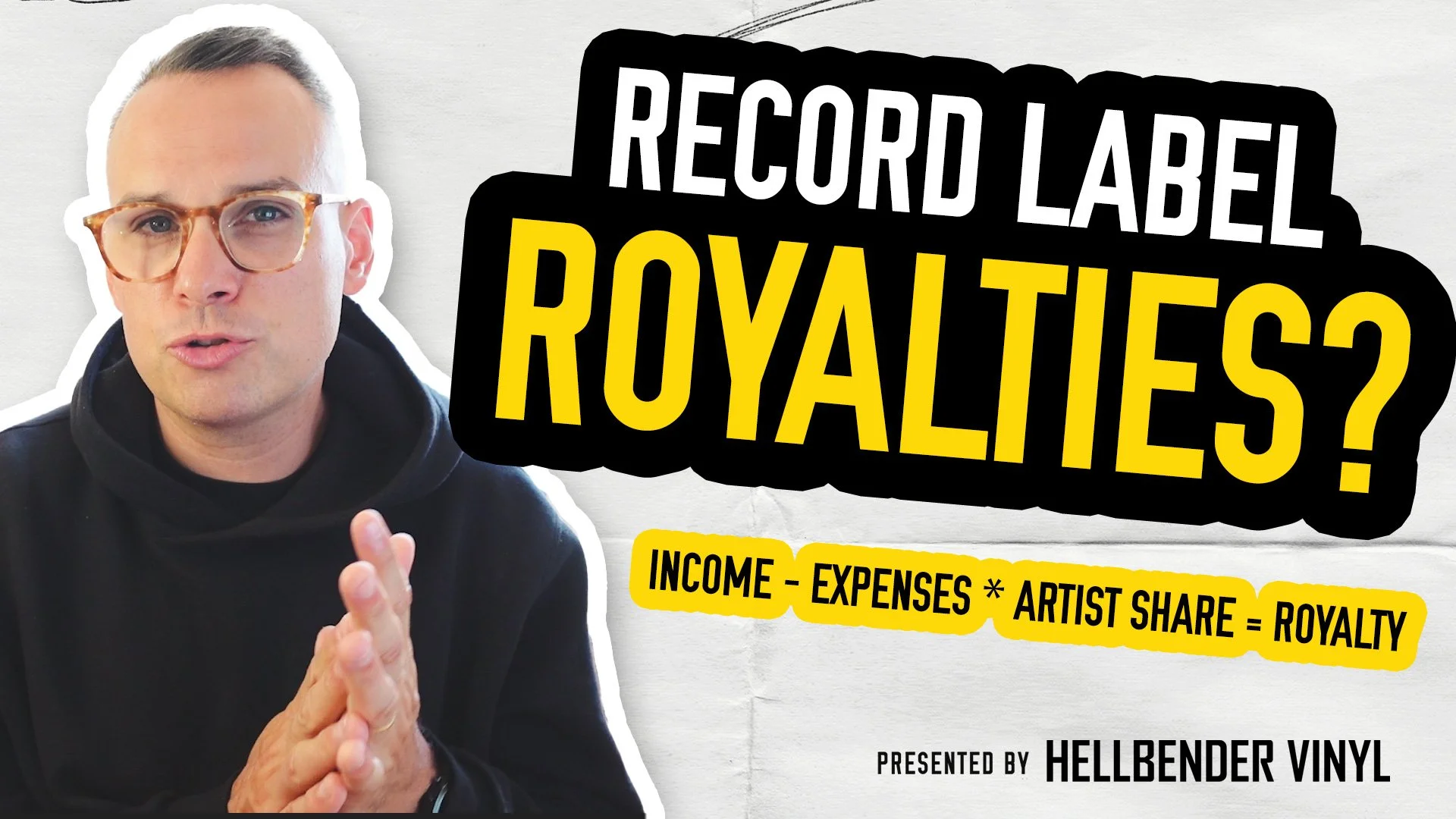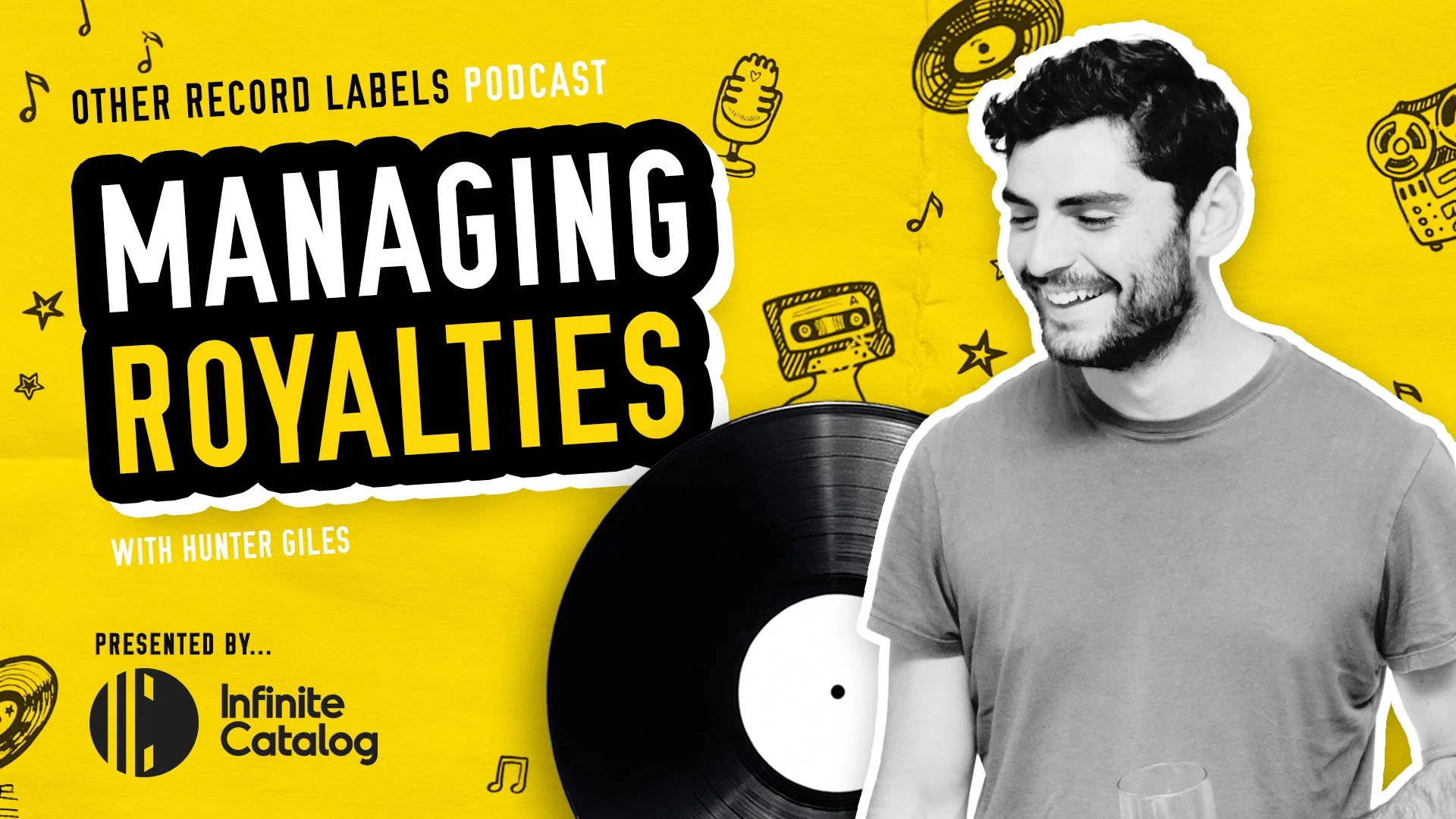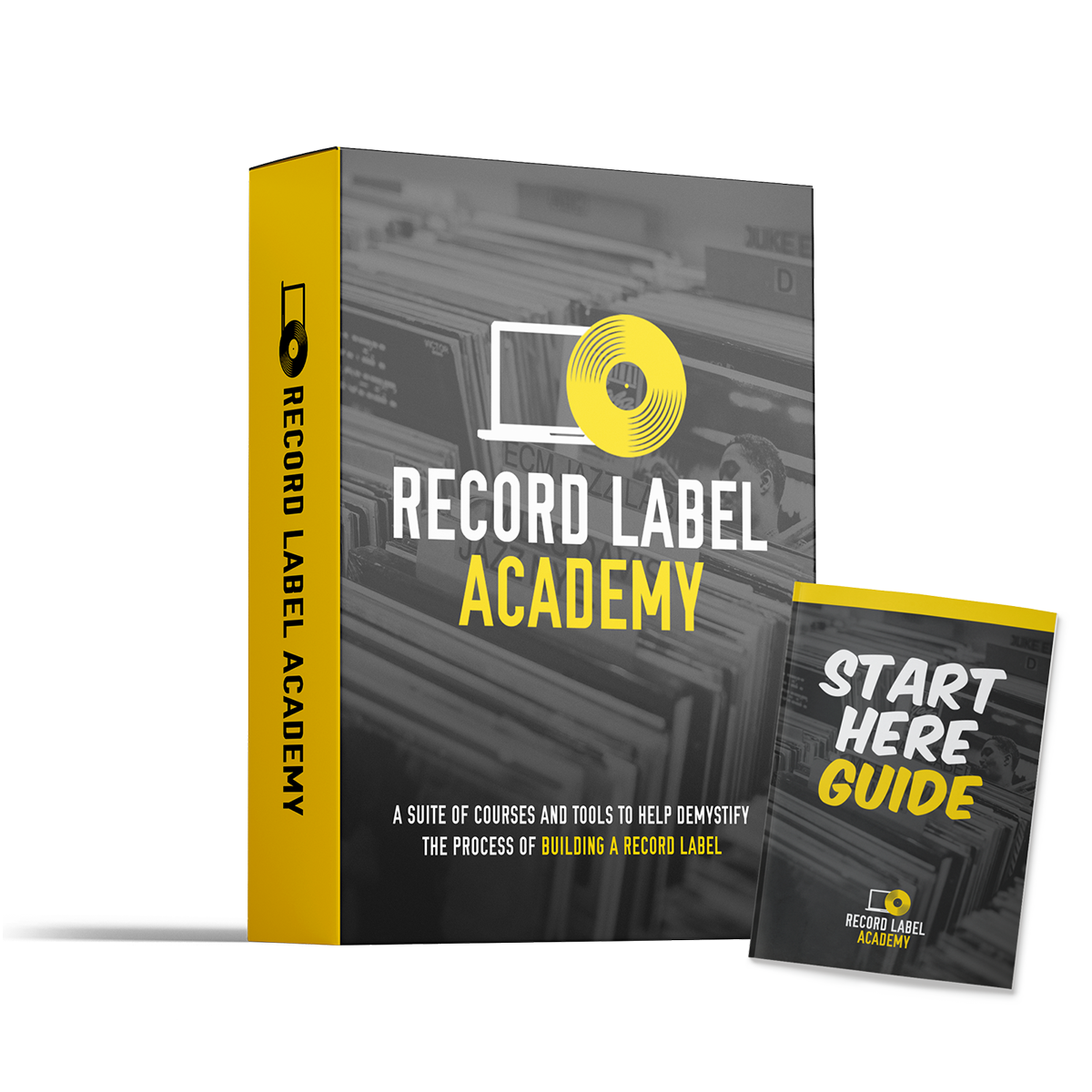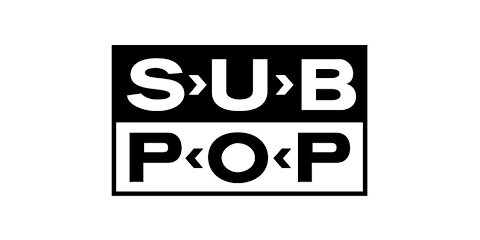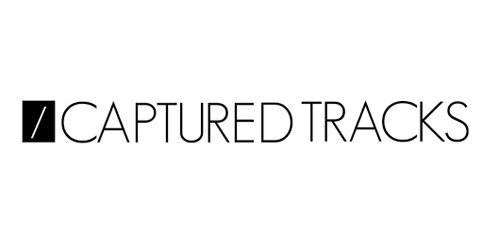
The Ultimate Guide To Managing Your Record Label Royalties
Managing record label advances, splits, and expenses doesn’t have to be hard.
Record Label Royalty FAQs
Do I need to pay my artists an advance?
No. Discuss ahead of time with the artist how that money might be better used to invest in PR, ads, or manufacturing.
Is there a good option for royalty accounting software?
Yes, the coolest one that I’ve seen and the most user-friendly is from Infinite Catalog.
How often do I need to report royalties to my artists?
Whatever you and your artist agree upon. Just pick a consistent timeframe that you can maintain. Monthly might end up being a lot of work, so try quarterly.
The basics of Record Label Royalties…
In this quick video, I will explain the formula for calculating royalties, how often you should generate a royalty report, and what percentage is best for you and the artists!
The Basic Record Label Royalty Formula
Understanding how royalties are calculated is crucial for any record label owner. Here’s the basic formula:
Income - Expenses x Artist Share = Royalty
For example: $1000 (Income) - $500 (Expenses) * 50% (Artist Share) = $250 (Royalty)
If the artist received a $1000 advance, this amount would be deducted from their royalty, resulting in a balance of -$750.
Royalty Payouts
Royalty Payments
After calculating royalties, the next step is paying the artist. Common practices include:
Frequency: Most labels pay quarterly, striking a balance between not too frequently and not too sporadically.
Transparency: Clear, upfront communication about royalty calculations and payment schedules is crucial. Ensure contracts specify these details.
Tools and Best Practices
Software: Utilize tools like Infinite Catalog for managing royalty calculations and providing transparency to artists.
Spreadsheets: Create custom spreadsheets or use templates to track finances.
Transparency: Offer artists access to their statements, either directly through software or by sharing screenshots.

Record Label Royalties
Glossary
Royalty: Payment to artists based on sales or usage of their music.
Statement: Detailed report outlining earnings and deductions for artists and collaborators.
Cash Flow: Movement of money in and out concerning label expenses and earnings.
Transparency: Clear communication and openness in financial dealings with artists and collaborators.
Collaborator: Artist, songwriter, or contributor entitled to royalties for their creative work.
Catalog Growth: Expansion of the label's collection of music and creative content.
Trust: Foundation of successful label-artist relationships built on reliability and transparency.
Efficiency: Streamlined processes and tools for accurate and timely royalty accounting.
Budgeting: Planning and allocating resources for label expenses and future releases.
Partnership: Collaborative relationship between label and artists, based on mutual success.
Intentional Management: Purposeful and strategic handling of royalties for label and artist benefit.
Sustainability: Long-term viability and success of the label through effective royalty management.

Types of Music Copyrights
Every song has two main types of copyrights:
Composition: Covers the song as written (lyrics and melody).
Sound Recording: Covers the song as recorded.
Types of Royalties
Sales/Streaming: Generates reproduction (sound recording) and mechanical (composition) royalties.
Public Performances: Generates performance royalties when music is played publicly (radio, live performances, streaming services).
Licensing: Generates synchronization (sync) royalties when music is licensed for use in TV, films, ads, etc.
Royalty Stakeholders
Sound Recording: Typically owned by the record label, which pays the band members, producers, and other contributors.
Composition: Typically managed by a publisher who splits royalties with the songwriter(s).
Being BAD at Managing Your Royalties…
1. Wasting time and money:
Outdated processes or tools can be a drain on your resources. Time is money, and inefficient systems mean you're investing both in the wrong places.
2. Stress about cash flow:
Uncertainty about what you owe and when you'll receive payments can keep you up at night. An unreliable cash flow can hinder your label's ability to make strategic decisions.
3. Late, confusing, inaccurate statements:
Waiting for statements that are late, confusing, or worse, inaccurate, can lead to frustration and potential disputes. Clear, timely statements are crucial for maintaining transparency and trust.
4. Eroding faith in growth:
When artists and collaborators experience issues with royalty payments, it can shake their confidence in your label's ability to grow together. Trust is the foundation of successful partnerships.
Being GOOD at Managing Your Royalties…
1. More time and money for growth:
Streamlining your royalty accounting process frees up valuable time and resources. Instead of being bogged down by administrative tasks, you can focus on growing your label.
2. Effective budgeting and release planning:
With a solid royalty management system, you gain insights into your cash flow, allowing you to budget more effectively and plan releases strategically.
3. Sign more artists and songwriters:
A reputation for reliable royalty payments is a powerful tool for attracting new talent. Artists and songwriters want to work with labels that prioritize their financial success.
4. Build trust and collaboration:
When your collaborators see that you prioritize their financial interests, trust is built. This trust not only strengthens your existing partnerships but also attracts new opportunities for collaboration.
Let’s talk about record label royalties…
In this video, I interview Hunter Giles, a label owner himself, and the founder of Infinite Catalog, a software tool to help indie labels manage their royalties!
Record label royalty accounting doesn’t have to be hard.
Our friends at Infinite Catalog have created an incredible all-in-one software + service to get royalties done, keep everyone in the loop, and get everybody paid.
Video walkthrough of Infinite Catalog!
Co-founder Hunter Giles gives us an in-depth walkthrough on the benefits of using Infinite Catalog’s platform for record label royalties!

Listen to my podcast interview with Infinite Catalog…
Listen on Spotify or Apple Podcasts
BONUS ACCOUNTING RESOURCES

RECORD LABEL
ACADEMY
The Complete A to Z of Building and Growing an Independent Record Label.
Other Record Labels Podcast
Featuring interviews with…
